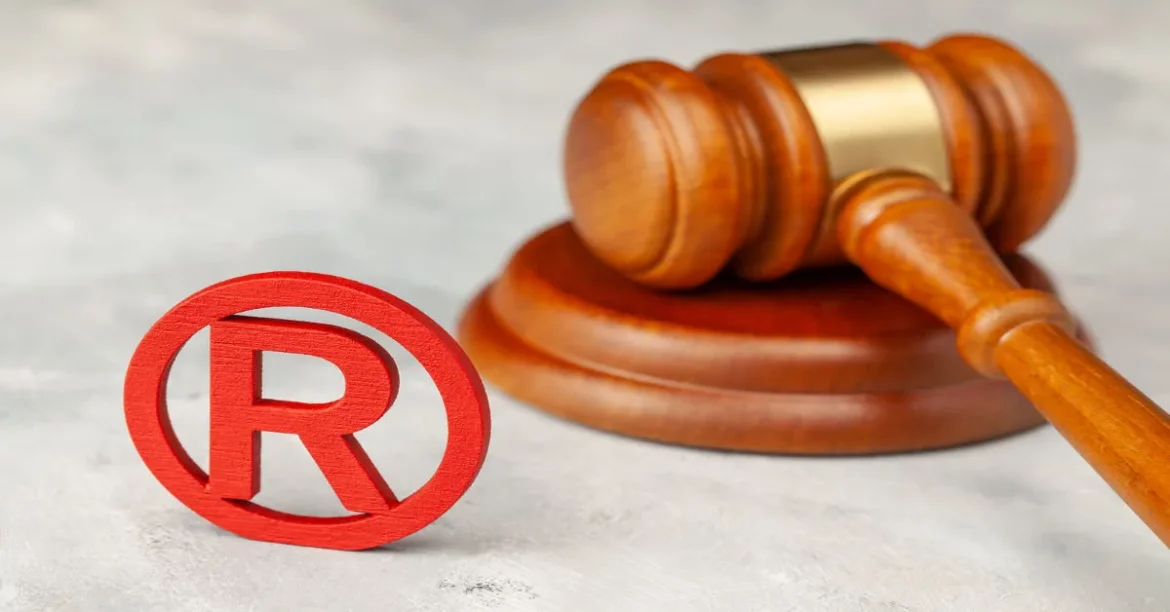Trademark opposition refers to a legal procedure where a third party objects to the registration of a trademark. The opposition must be initiated within a four-month period following the publication of the trademark in the official Trademarks journal. It is a crucial step in the trademark registration process that permits any third party to oppose a trademark application before it is officially registered. This mechanism serves as a safeguard to prevent the registration of a trademark that may conflict with an existing trademark or violate fundamental legal principles.
In India, trademark opposition is governed by the Trademarks Act, 1999. This process allows individuals and businesses to object to a trademark application that may infringe upon their existing rights. Understanding the grounds, procedures, and strategies related to a trademark opposition is essential for brand owners to navigate the complexities associated with an opposition proceeding.
Initiating a Trademark Opposition
A “Trademark Journal” is an official publication that comprises of the list of trademarks accepted and advertised by the Trademarks Registry. This journal is accessible to the public and is published every week on the official website https://ipindia.gov.in/ of Trademarks Registry. This journal provides an opportunity to the public to oppose and raise objections against a particular trademark by filing a “Notice of Opposition” within four months from the date of publication.
Appropriate Forum
In India, the appropriate forum for filing a trademark opposition is the Trademarks Registry, which operates under the Office of the Controller General of Patents, Designs & Trademarks. The Indian Trademarks Registry has its offices in Mumbai, Ahmedabad, Chennai, Delhi, and Kolkata. Each office caters to different states or regions of the country and the opposition must be lodged within the jurisdiction in which a particular trademark application has been filed.
Who Can Oppose a Trademark?
As per Section 21 of the Trademarks Act, 1999, any person may oppose an application for registration of a trademark. The term ‘any person’ is open to interpretation and may include an individual, a company, an association, or a partnership firm. The person could be the owner of an earlier registered trademark, a prior user of a trademark with common law rights, business competitors etc. who believe that registering a particular trademark would adversely affect their interests or violate legal or regulatory standards.
Common Grounds for Filing a Trademark Opposition
The following is a list of possible grounds on which a third party may oppose a trademark.
- Lack of Distinctiveness: The trademark lacks uniqueness and cannot differentiate one’s goods or services from those of another.
- Descriptive Nature: The trademark merely describes the kind, quality, intended purpose or any other characteristics of the goods or services and does not function as a brand identifier.
- Generic Term: The trademark consists of common words or exclusive signs and indications widely used in the industry.
- Prohibited Marks: The trademark comprises of elements that are likely to hurt the religious sentiments of a section of citizens; national flags and symbols, or obscene words etc.
- Likelihood of Confusion: The mark is identical and/or similar to an existing trademark and deals with similar goods and/or services.
- Dilution of a Well-Known Trademark: The mark is similar and/or identical to a well-known mark, which is likely to tarnish the reputation of the well-known trademark.
The Opposition Procedure in India
Provided herein below is a step-by-step process involving several stages of a trademark opposition in India.
1. Notice of Opposition
- A Notice of Opposition must be filed within four months from the date of publication of the trademark in the Trademarks Journal.
- It should specify the grounds on which the opposition is filed, along with details about the opponent and the application.
2. Counter Statement
- Once the Notice of Opposition is filed, the Registrar serves upon the applicant a copy of the same ordinarily within three months’ time.
- The applicant must respond by filing a counter statement within two months of receipt of the Notice of Opposition. The Counter Statement should include the grounds on which he relies for his application.
- Failure to file a counter statement within the deadline of two months will result in abandonment of the trademark application.
- No extension is available for filing the counter statement.
3. Evidence Stage
Opponent’s Evidence
- The Registrar serves a copy of the counter statement to the opponent ordinarily within three months.
- Within two months from the date of receipt of the counter statement, the opponent must submit an affidavit along with supporting documents to substantiate their claims (or) intimate in writing that they intend to rely upon the facts stated in the notice of opposition. The opponent should also deliver copies of the documents to the applicant under intimation to the Registrar.
Applicant’s Evidence
- Within two months from the date of receipt of the opponent’s evidence, the Applicant must submit his affidavit with supporting documents (or) intimate the Registrar his intent to rely upon the facts stated in the counter statement. The opponent must be notified regarding the same.
Evidence in Reply
- Within one month from receipt of the applicant’s evidence, if the opponent wishes to rebut to the applicant’s evidence, the opponent may submit an affidavit with supporting documents, if any.
- No extension is available for any of the evidence stages above.
4. Hearing and Decision
- On completion of the above procedures, a hearing is scheduled after all the evidence has been presented to the Registrar.
- Both parties present arguments and based on the merits of the case, the Registrar issues a decision to either grant or refuse the trademark registration.
Navigating the opposition process can be complex and time-consuming, often leading to prolonged battles and significant costs. Therefore, taking proactive steps to minimise the likelihood of opposition is essential for a smoother trademark registration process.
How to Avoid Incurring an Opposition Proceeding
Given below are a few valuable tips and strategies for applicants to minimise the risk of facing an opposition.
- Choose Distinctive and Unique Marks: opt for creative, arbitrary, or fanciful marks rather than descriptive or generic terms.
- Conduct Comprehensive Trademark Searches: Prior to applying for a trademark, it is essential to conduct a clearance search in Registry database. This helps determine the availability of a proposed trademark and identify any existing similar or identical marks that might cause confusion or contribute to infringement.
- Avoid Similarity to Well-Known Trademarks: Ensure the mark is not phonetically, visually, structurally or conceptually similar to reputed trademarks.
- Seek Professional Guidance: Consult a qualified Trademark Attorney for risk assessment and strategic application filing.
Notwithstanding the above, trademark applications may still encounter an opposition. In such cases, adopting a strategic approach to handle the opposition and achieve a favourable outcome is crucial.
How to Effectively Handle an Opposition Proceeding
In order to achieve a favourable outcome in an opposition proceeding, it is essential to build a strong defence, and it requires a strategic approach. Here are some key tips and pointers.
- Understand the Grounds of Opposition: One must carefully review the notice of opposition to understand the grounds cited. It is crucial to identify if the opposition is based on similarity between marks, lack of distinctiveness etc.
- Trademark Analysis and Response: The trademark must be assessed based on its strength and subsequently, a well-structured counter statement ought to be filed within the prescribed deadline.
- Gather Robust Evidence: Compile documents that corroborate commercial use of the trademark. These documents may include sales invoices, advertisements, customer testimonials, media coverage and in some cases, list of international registrations. This would allow to establish use, distinctiveness, and market reputation of a particular mark during evidence stages.
- Engage a Trademark Attorney: A Trademark Attorney can provide expert guidance on drafting responses, submitting documents and handling hearings.
- Explore Settlement Options: If there is potential for a mutual understanding, a settlement or co-existence may help resolve the dispute without litigation. This could include negotiating a restriction on goods/services, limiting the scope of area of business etc. It depends on the facts and circumstances of each individual case.
Primarily, it is essential to stay informed about the developments and keep track of official deadlines in an opposition proceeding. Businesses can effectively safeguard their intellectual property by understanding the process, timelines, potential grounds for opposition, and strategic approaches to handling disputes. Proactive steps such as conducting thorough searches, selecting distinctive marks, and seeking expert legal advice can minimise the risk of opposition and enhance the chances of securing trademark registration.
FAQs
1. What is the time period for filing a notice of opposition?
A trademark opposition must be filed within four months from the date of publication of a mark in the Trademarks Journal.
2. How can business owners avoid an opposition?
Business owners can avoid opposition by conducting thorough trademark searches, selecting unique and non-conflicting trademarks, and consulting Trademark Attorneys before filing an application.
3. What happens if I don’t respond to an opposition.
If the applicant does not respond by filing a counter statement within two months, the trademark application is deemed abandoned.
4. What steps should I take when facing trademark opposition?
Consult a Trademark Attorney, analyse the opposition and file a counter statement, gather substantial documents to participate in the opposition proceeding, and explore settlement options depending on the circumstances.
5. Is Legal assistance necessary in handling trademark oppositions?
While it is not mandatory, legal assistance is extremely helpful in navigating the complexities of a trademark opposition.



